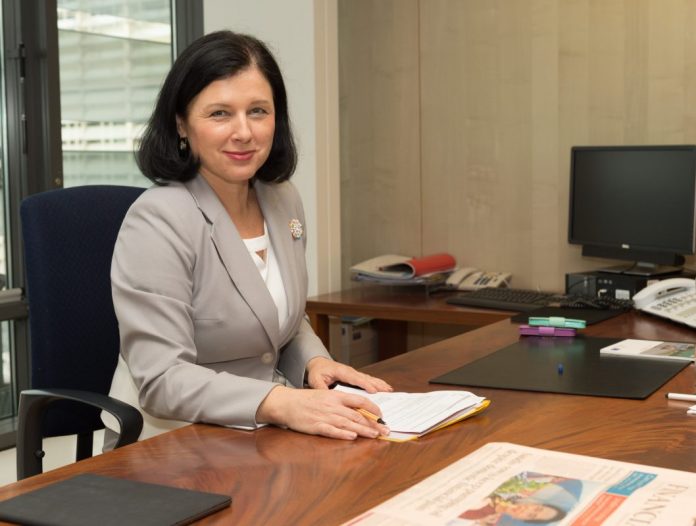Věra Jourová, European Commissioner for Justice, Consumers and Gender Equality takes stock of the progress and the remaining challenges in the way of gender equality…
I believe that Europe is a “good address” for women. Today, more women than ever graduate from university, have a job and participate in all areas of society.
Nevertheless, gender equality is not fully achieved yet. For instance, at the current pace, we could wait another 30 years for gender parity in national parliaments… This is clearly too slow.
Equal participation of women and men in society, in the labour market and in decision-making is not only a matter of justice and fundamental rights, it is also an economic investment in our modern society and economy.
As Commissioner for Justice, Consumers and Gender Equality, I have the ambition to end, or contribute to ending the unfinished business of gender equality. I see 4 main areas of action to achieve this goal:
First: increasing economic independence of women
Ensuring economic independence of women is key to achieving gender equality. Despite their high qualifications and education levels (60% of university graduates in the EU are women), women are still today more likely to be paid less than men, to leave the labour market or to work part-time.
Work-life balance measures are very powerful in removing obstacles to female employment. However, they are still too limited. For instance, the availability, affordability, and quality of childcare facilities are not yet satisfactory, despite EU targets, funding possibilities and recommendations. Moreover, it is primarily women who use parental leave for instance, while men continue to make very limited use of such measures.
To address these challenges and strengthen gender equality, the Commission aims to improve work-life balance of parents and others with caring responsibilities and to promote a better share of paid and unpaid work between women and men.
Second: reducing the gender pay, earnings and pension gaps and thus fighting poverty among women
In the EU, women are paid 16% less than men per hour of work. I am very committed to use all the existing instruments to tackle this gender pay gap. This includes monitoring enforcement of EU legislation on equal pay, promoting pay transparency, strengthening research and public awareness of the phenomenon, supporting employers and trade unions in combating it. Every organisation in every sector can and should contribute to closing the gender pay gap.
As a result of lower pay, longer career interruptions and more part-time work due to care responsibilities, women’s pension benefits are 40% lower than men’s. Older women are also at a higher risk of poverty. The EU has issued recommendations to several Member States to address the adequacy of their pension systems.
Third: promoting equality between women and men in decision-making
Women still face barriers to take on decision-making positions in all sectors. They represent only 5% of CEO’s and 23% of the board members of the largest publicly listed companies registered in EU Member States. Gender equality is also limited in politics at national or local level. For instance, women represent on average 29% of members of national parliaments in the EU, 32.5% of members of regional assemblies and only 15% of mayors.
We need to break the class ceiling that stops women from reaching the highest positions. That’s why the Commission proposed modern and flexible rules setting a target of a 40% presence of the under-represented sex on corporate boards by 2020. Our approach is merit-based, focusing on a fair and transparent selection process, which will bring about change. The Commission also promotes gender equality in economic decision-making by analysing data, raising awareness and promoting the exchange of good practice, and supporting stakeholders and various initiatives.
Fourth: Tackling gender-based violence
Finally, we need to tackle the serious issue of violence against women. One in 3 women in the EU has experienced or will experience violence in her life. Recent EU legislation secures victims’ rights, addresses trafficking in human beings, and promotes equal treatment. I am determined to enforce it and to push for an end of violence against women. EU-funding, supporting grass-roots activities aiming at preventing violence, supporting victims, encouraging cooperation between relevant professionals and tackling under-reporting, should help in this endeavour. We will dedicate the year 2017 to the fight against violence against women, both in Europe and beyond. Gender equality is attainable. It comes down to all of us, men and women, to stand together, today and every day and commit to creating a world where our daughters and sons have equal opportunities.
Vĕra Jourová
Commissioner for Justice, Consumers and Gender Equality
European Commission











